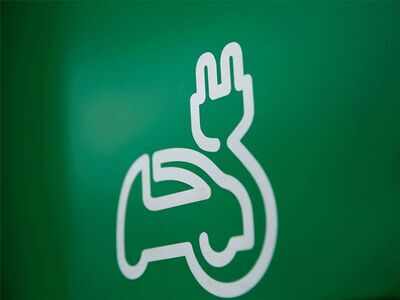
THIRUVANANTHAPURAM: State-run Kerala Automobiles Limited (KAL) will begin the production of electric autorickshaws from Wednesday with an aim to launch 8,000 vehicles in the first phase.
KAL will also enter into the production of electric buses within next nine months in collaboration with Swiss electric bus manufacturer Hess AG.
Automotive Research Association of India has already given certification to KAL for manufacturing electric autorickshaws. The company will soon begin accepting orders from the market for autorickshaws.
According to KAL, the e-autos will be capable of travelling 100km after a full recharge. The mileage can be increased if the vehicle is charged when it is at rest.
“The lithium-based batteries can be charged using ordinary plug sockets at home. We are also working towards launching electric charging stations across the state with help from the Kerala state electricity board (KSEB). E- autos, which will cost around Rs 2.5 lakh per unit, can be operated at a cost of 50 paise per km. Thus it will fetch better profits for the autorickshaw drivers. Setting up of charging stations at auto stands is also on the cards. Maintenance cost will also be lower than petrol/diesel autorickshaws,” said KAL managing director A Shahjahan.
Swiss company Hess AG had evinced interest in setting up an electric bus manufacturing unit in the state after learning about the state government’s electric vehicle policy and the plans to switch over to electric vehicles soon.
The company representatives had held discussions with chief secretary Tom Jose in this regard. Also, a memorandum of understanding has been signed in the presence of the chief minister.
The state government had last year framed and announced an electric vehicle policy that targets one million electric vehicles on the roads in the state by 2022. This also includes 3,000 electric buses. In the electric vehicle policy, buses will be given more preference, due to its potential to reduce pollution and promote shared mobility.
E-buses for public transport are envisaged with an average driving range of 50km to 100km in one recharge.
The policy also envisages that a part of KSRTC’s fleet of 6,000 buses will be converted to electric buses by 2025 with financial aid from the Centre. The KSRTC, on an average, procures around 1,000 buses annually. Switching over to electric buses also reduces maintenance and fuel costs.
KAL will also enter into the production of electric buses within next nine months in collaboration with Swiss electric bus manufacturer Hess AG.
Automotive Research Association of India has already given certification to KAL for manufacturing electric autorickshaws. The company will soon begin accepting orders from the market for autorickshaws.
According to KAL, the e-autos will be capable of travelling 100km after a full recharge. The mileage can be increased if the vehicle is charged when it is at rest.
“The lithium-based batteries can be charged using ordinary plug sockets at home. We are also working towards launching electric charging stations across the state with help from the Kerala state electricity board (KSEB). E- autos, which will cost around Rs 2.5 lakh per unit, can be operated at a cost of 50 paise per km. Thus it will fetch better profits for the autorickshaw drivers. Setting up of charging stations at auto stands is also on the cards. Maintenance cost will also be lower than petrol/diesel autorickshaws,” said KAL managing director A Shahjahan.
Swiss company Hess AG had evinced interest in setting up an electric bus manufacturing unit in the state after learning about the state government’s electric vehicle policy and the plans to switch over to electric vehicles soon.
The company representatives had held discussions with chief secretary Tom Jose in this regard. Also, a memorandum of understanding has been signed in the presence of the chief minister.
The state government had last year framed and announced an electric vehicle policy that targets one million electric vehicles on the roads in the state by 2022. This also includes 3,000 electric buses. In the electric vehicle policy, buses will be given more preference, due to its potential to reduce pollution and promote shared mobility.
E-buses for public transport are envisaged with an average driving range of 50km to 100km in one recharge.
The policy also envisages that a part of KSRTC’s fleet of 6,000 buses will be converted to electric buses by 2025 with financial aid from the Centre. The KSRTC, on an average, procures around 1,000 buses annually. Switching over to electric buses also reduces maintenance and fuel costs.
World Cup 2019
Trending Topics
LATEST VIDEOS
More from TOI
Navbharat Times
Featured Today in Travel
Quick Links
Lok Sabha Election Schedule 2019Lok Sabha Election NewsDelhi Capitals teamMI team 2019Rajasthan Royals 2019RCB team 2019Maharashtra Lok Sabha ConstituenciesBJP Candidate ListBJP List 2019 TamilnaduShiv Sena List 2019AP BJP List 2019Mamata BanerjeeBJP List 2019 MaharashtraPriyanka GandhiBJP List 2019 KarnatakaAMMK Candidate List 2019BJP List 2019 WBLok Sabha Elections in Tamil NaduBSP List 2019 UPNews in TamilLok Sabha Poll 2019Satta Matka 2018PM ModiMahagathbandhanNagpur BJP Candidate ListChandrababu NaiduTamil Nadu ElectionsUrmila MatondkarNews in TeluguMadras High CourtTejashwi YadavArvind KejriwalTejasvi SuryaPawan KalyanArvind KejriwalYogi AdityanathJaya PradaSatta King 2019Srinagar encounter
Get the app







